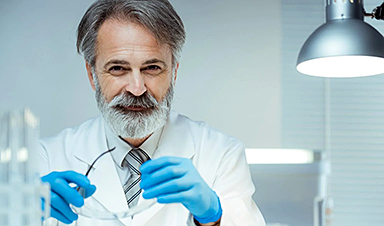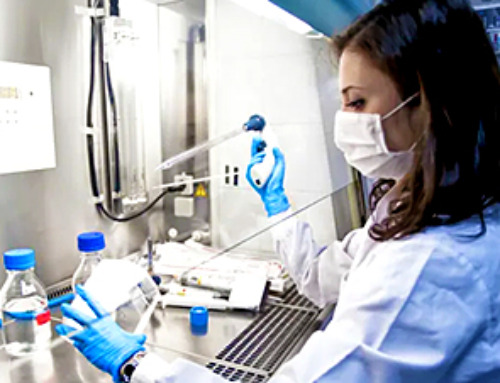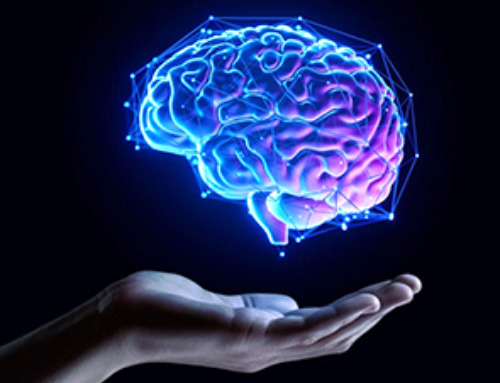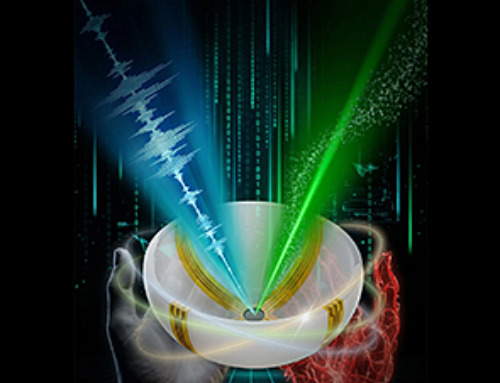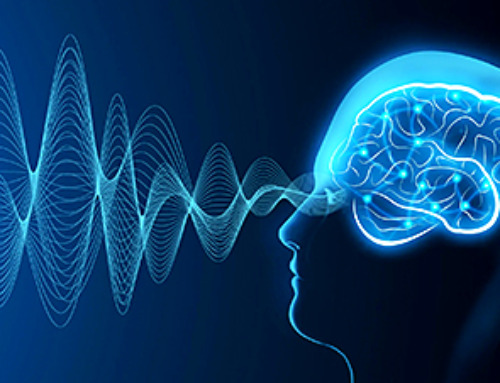A landmark global survey conducted across 68 countries has found that public trust in scientists remains robust, with significant support for their active involvement in societal and political matters.
The study highlights the public's demand for science to prioritize issues like public health and energy solutions over defense technologies, pointing to a potential misalignment between scientific priorities and public expectations.
Global Trust in Science Research
A global survey conducted across 68 countries shows that public trust in scientists remains strong. The study, led by researchers from the University of Zurich and ETH Zurich, is the largest of its kind conducted since the COVID-19 pandemic. It explores public trust in science, societal expectations, and views on research priorities.
The findings, based on data from 241 researchers, indicate that trust in scientists is moderately high worldwide. Viktoria Cologna of ETH Zurich and Niels G. Mede of the University of Zurich, who led the study, stated that "our results show that most people in most countries have a relatively high level of trust in scientists" and believe they should play an active role in society and politics. Contrary to popular belief, the study found no evidence of a widespread crisis of trust in science.
The study is the result of the TISP Many Labs study, a collaborative effort that allowed the authors to survey 71,922 people in 68 countries, including many under-researched countries in the Global South. For the first time since the coronavirus pandemic, the study provides global, representative survey data on the populations and regions of the world in which researchers are perceived to be most trustworthy, the extent to which they should engage with the public, and whether science is prioritizing important research issues.
No Crisis of Trust in Science
Across 68 countries, the study finds that the majority of the public has a relatively high level of trust in scientists (mean trust level = 3.62, on a scale of 1 = very low trust to 5 = very high trust). The majority of respondents also perceive scientists as qualified (78%), honest (57%), and concerned about people's well-being (56%).
However, the results also reveal some areas of concern. Globally, less than half of respondents (42%) believe that scientists pay attention to the views of others. "Our results also show that many people in many countries feel that the priorities of science are not always well aligned with their own priorities," says co-author Niels G. Mede. "We recommend that scientists take these results seriously and find ways to be more receptive to feedback and open to dialogue with the public."
Differences Between Countries and Population Groups
The findings confirm the results of previous studies that show significant differences between countries and population groups. In particular, people with right-wing political views in Western countries tend to have less trust in scientists than those with left-wing views. This suggests that attitudes toward science tend to polarize along political lines. In most countries, however, political orientation and trust in scientists were not related.
Advocacy and Policy: The Role of Scientists in Society
A majority of respondents want science to play an active role in society and policy-making. Globally, 83% of respondents believe that scientists should communicate with the public about science, providing an impetus for increased science communication efforts. Only a minority (23%) believe that scientists should not actively advocate for specific policies. 52% believe that scientists should be more involved in the policy-making process.
Participants gave high priority to research to improve public health, solve energy problems, and reduce poverty. On the other hand, research to develop defense and military technology was given a lower priority. In fact, participants explicitly believe that science is prioritizing the development of defense and military technology more than they would like, highlighting a potential misalignment between public and scientific priorities.
Explore Further: Science Gets a Global Thumbs-Up – What 68 Countries Really Think
Reference: "Trust in scientists and their role in society across 68 countries" by Viktoria Cologna, Niels G. Mede, Sebastian Berger, John Besley, Cameron Brick, Marina Joubert, Edward W. Maibach, Sabina Mihelj, Naomi Oreskes, Mike S. Schäfer, Sander van der Linden, Nor Izzatina Abdul Aziz, Suleiman Abdulsalam, Nurulaini Abu Shamsi, Balazs Aczel, Indro Adinugroho, Eleonora Alabrese, Alaa Aldoh, Mark Alfano, Innocent Mbulli Ali, Mohammed Alsobay, Marlene Altenmüller, R. Michael Alvarez, Richard Amoako, Tabitha Amollo, Patrick Ansah, Denisa Apriliawati, Flavio Azevedo, Ani Bajrami, Ronita Bardhan, Keagile Bati, Eri Bertsou, Cornelia Betsch, Apurav Yash Bhatiya, Rahul Bhui, Olga Białobrzeska, Michał Bilewicz, Ayoub Bouguettaya, Katherine Breeden, Amélie Bret, Ondrej Buchel, Pablo Cabrera-Álvarez, Federica Cagnoli, André Calero Valdez, Timothy Callaghan, Rizza Kaye Cases, Sami Çoksan, Gabriela Czarnek, Steven De Peuter, Ramit Debnath, Sylvain Delouvée, Lucia Di Stefano, Celia Díaz-Catalán, Kimberly C. Doell, Simone Dohle, Karen M. Douglas, Charlotte Dries, Dmitrii Dubrov, Małgorzata Dzimińska, Ullrich K. H. Ecker, Christian T. Elbaek, Mahmoud Elsherif, Benjamin Enke, Tom W. Etienne, Matthew Facciani, Antoinette Fage-Butler, Md. Zaki Faisal, Xiaoli Fan, Christina Farhart, Christoph Feldhaus, Marinus Ferreira, Stefan Feuerriegel, Helen Fischer, Jana Freundt, Malte Friese, Simon Fuglsang, Albina Gallyamova, Patricia Garrido-Vásquez, Mauricio E. Garrido Vásquez, Winfred Gatua, Oliver Genschow, Omid Ghasemi, Theofilos Gkinopoulos, Jamie L. Gloor, Ellen Goddard, Mario Gollwitzer, Claudia González-Brambila, Hazel Gordon, Dmitry Grigoryev, Gina M. Grimshaw, Lars Guenther, Håvard Haarstad, Dana Harari, Lelia N. Hawkins, Przemysław Hensel, Alma Cristal Hernández-Mondragón, Atar Herziger, Guanxiong Huang, Markus Huff, Mairéad Hurley, Nygmet Ibadildin, Maho Ishibashi, Mohammad Tarikul Islam, Younes Jeddi, Tao Jin, Charlotte A. Jones, Sebastian Jungkunz, Dominika Jurgiel, Zhangir Kabdulkair, Jo-Ju Kao, Sarah Kavassalis, John R. Kerr, Mariana Kitsa, Tereza Klabíková Rábová, Olivier Klein, Hoyoun Koh, Aki Koivula, Lilian Kojan, Elizaveta Komyaginskaya, Laura König, Lina Koppel, Kochav Koren Nobre Cavalcante, Alexandra Kosachenko, John Kotcher, Laura S. Kranz, Pradeep Krishnan, Silje Kristiansen, André Krouwel, Toon Kuppens, Eleni A. Kyza, Claus Lamm, Anthony Lantian, Aleksandra Lazić, Oscar Lecuona, Jean-Baptiste Légal, Zoe Leviston, Neil Levy, Amanda M. Lindkvist, Grégoire Lits, Andreas Löschel, Alberto López Ortega, Carlos Lopez-Villavicencio, Nigel Mantou Lou, Chloe H. Lucas, Kristin Lunz-Trujillo, Mathew D. Marques, Sabrina J. Mayer, Ryan McKay, Hugo Mercier, Julia Metag, Taciano L. Milfont, Joanne M. Miller, Panagiotis Mitkidis, Fredy Monge-Rodríguez, Matt Motta, Iryna Mudra, Zarja Muršič, Jennifer Namutebi, Eryn J. Newman, Jonas P. Nitschke, Ntui-Njock Vincent Ntui, Daniel Nwogwugwu, Thomas Ostermann, Tobias Otterbring, Jaime Palmer-Hague, Myrto Pantazi, Philip Pärnamets, Paolo Parra Saiani, Mariola Paruzel-Czachura, Michal Parzuchowski, Yuri G. Pavlov, Adam R. Pearson, Myron A. Penner, Charlotte R. Pennington, Katerina Petkanopoulou, Marija B. Petrović, Jan Pfänder, Dinara Pisareva, Adam Ploszaj, Karolína Poliaková, Ekaterina Pronizius, Katarzyna Pypno-Blajda, Diwa Malaya A. Quiñones, Pekka Räsänen, Adrian Rauchfleisch, Felix G. Rebitschek, Cintia Refojo Seronero, Gabriel Rêgo, James P. Reynolds, Joseph Roche, Simone Rödder, Jan Philipp Röer, Robert M. Ross, Isabelle Ruin, Osvaldo Santos, Ricardo R. Santos, Philipp Schmid, Stefan Schulreich, Bermond Scoggins, Amena Sharaf, Justin Sheria Nfundiko, Emily Shuckburgh, Johan Six, Nevin Solak, Leonhard Späth, Bram Spruyt, Olivier Standaert, Samantha K. Stanley, Gert Storms, Noel Strahm, Stylianos Syropoulos, Barnabas Szaszi, Ewa Szumowska, Mikihito Tanaka, Claudia Teran-Escobar, Boryana Todorova, Abdoul Kafid Toko, Renata Tokrri, Daniel Toribio-Florez, Manos Tsakiris, Michael Tyrala, Özden Melis Uluğ, Ijeoma Chinwe Uzoma, Jochem van Noord, Christiana Varda, Steven Verheyen, Iris Vilares, Madalina Vlasceanu, Andreas von Bubnoff, Iain Walker, Izabela Warwas, Marcel Weber, Tim Weninger, Mareike Westfal, Florian Wintterlin, Adrian Dominik Wojcik, Ziqian Xia, Jinliang Xie, Ewa Zegler-Poleska, Amber Zenklusen and Rolf A. Zwaan, 20 January 2025, Nature Human Behaviour.
DOI: 10.1038/s41562-024-02090-5
News
These two viruses may become the next public health threats, scientists say
Two emerging pathogens with animal origins—influenza D virus and canine coronavirus—have so far been quietly flying under the radar, but researchers warn conditions are ripe for the viruses to spread more widely among humans. [...]
COVID-19 viral fragments shown to target and kill specific immune cells
COVID-19 viral fragments shown to target and kill specific immune cells in UCLA-led study Clues about extreme cases and omicron’s effects come from a cross-disciplinary international research team New research shows that after the [...]
Smaller Than a Grain of Salt: Engineers Create the World’s Tiniest Wireless Brain Implant
A salt-grain-sized neural implant can record and transmit brain activity wirelessly for extended periods. Researchers at Cornell University, working with collaborators, have created an extremely small neural implant that can sit on a grain of [...]
Scientists Develop a New Way To See Inside the Human Body Using 3D Color Imaging
A newly developed imaging method blends ultrasound and photoacoustics to capture both tissue structure and blood-vessel function in 3D. By blending two powerful imaging methods, researchers from Caltech and USC have developed a new way to [...]
Brain waves could help paralyzed patients move again
People with spinal cord injuries often lose the ability to move their arms or legs. In many cases, the nerves in the limbs remain healthy, and the brain continues to function normally. The loss of [...]
Scientists Discover a New “Cleanup Hub” Inside the Human Brain
A newly identified lymphatic drainage pathway along the middle meningeal artery reveals how the human brain clears waste. How does the brain clear away waste? This task is handled by the brain’s lymphatic drainage [...]
New Drug Slashes Dangerous Blood Fats by Nearly 40% in First Human Trial
Scientists have found a way to fine-tune a central fat-control pathway in the liver, reducing harmful blood triglycerides while preserving beneficial cholesterol functions. When we eat, the body turns surplus calories into molecules called [...]
A Simple Brain Scan May Help Restore Movement After Paralysis
A brain cap and smart algorithms may one day help paralyzed patients turn thought into movement—no surgery required. People with spinal cord injuries often experience partial or complete loss of movement in their arms [...]
Plant Discovery Could Transform How Medicines Are Made
Scientists have uncovered an unexpected way plants make powerful chemicals, revealing hidden biological connections that could transform how medicines are discovered and produced. Plants produce protective chemicals called alkaloids as part of their natural [...]
Scientists Develop IV Therapy That Repairs the Brain After Stroke
New nanomaterial passes the blood-brain barrier to reduce damaging inflammation after the most common form of stroke. When someone experiences a stroke, doctors must quickly restore blood flow to the brain to prevent death. [...]
Analyzing Darwin’s specimens without opening 200-year-old jars
Scientists have successfully analyzed Charles Darwin's original specimens from his HMS Beagle voyage (1831 to 1836) to the Galapagos Islands. Remarkably, the specimens have been analyzed without opening their 200-year-old preservation jars. Examining 46 [...]
Scientists discover natural ‘brake’ that could stop harmful inflammation
Researchers at University College London (UCL) have uncovered a key mechanism that helps the body switch off inflammation—a breakthrough that could lead to new treatments for chronic diseases affecting millions worldwide. Inflammation is the [...]
A Forgotten Molecule Could Revive Failing Antifungal Drugs and Save Millions of Lives
Scientists have uncovered a way to make existing antifungal drugs work again against deadly, drug-resistant fungi. Fungal infections claim millions of lives worldwide each year, and current medical treatments are failing to keep pace. [...]
Scientists Trap Thyme’s Healing Power in Tiny Capsules
A new micro-encapsulation breakthrough could turn thyme’s powerful health benefits into safer, smarter nanodoses. Thyme extract is often praised for its wide range of health benefits, giving it a reputation as a natural medicinal [...]
Scientists Develop Spray-On Powder That Instantly Seals Life-Threatening Wounds
KAIST scientists have created a fast-acting, stable powder hemostat that stops bleeding in one second and could significantly improve survival in combat and emergency medicine. Severe blood loss remains the primary cause of death from [...]
Oceans Are Struggling To Absorb Carbon As Microplastics Flood Their Waters
New research points to an unexpected way plastic pollution may be influencing Earth’s climate system. A recent study suggests that microscopic plastic pollution is reducing the ocean’s capacity to take in carbon dioxide, a [...]
